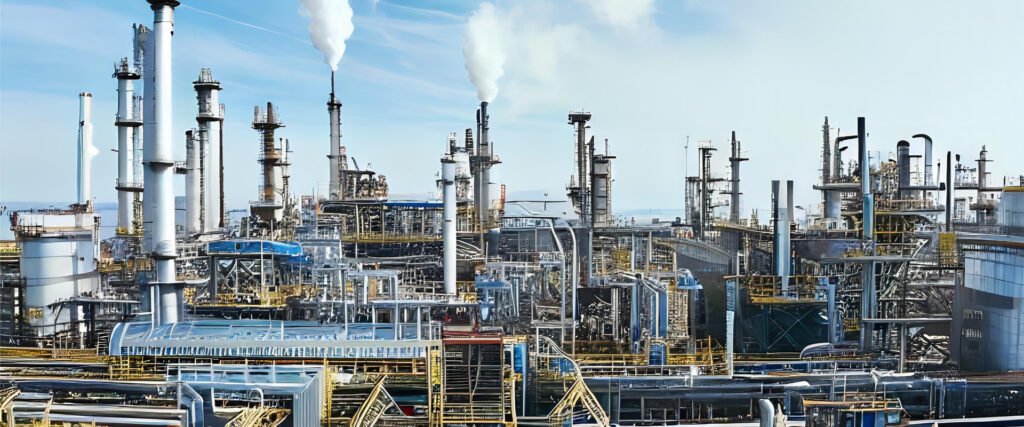Your cart is currently empty!
TEL:08615998857658

lubricant additive polyisobutylene in oil production
Polyisobutylene in oil production: polyisobutylene (PIB) is a polymer that is commonly used as a lubricant additive in various industries
Description
| Polyisobutylene in oil production: polyisobutylene (PIB) is a polymer that is commonly used as a lubricant additive in various industries, including oil production. It is a type of synthetic
rubber with excellent viscosity and temperature stability, making it suitable for enhancing the performance of lubricants in a wide range of applications. In oil production, lubricants play a crucial role in maintaining the efficiency and longevity of machinery and equipment. Polyisobutylene can be added to lubricating oils for several reasons: Viscosity Improvement: Polyisobutylene can improve the viscosity index of lubricating oils. This means that the oil’s viscosity remains relatively stable over a wide range of temperatures. This is particularly important in oil production where equipment may operate in varying temperature conditions. Friction Reduction: PIB can act as a friction modifier, reducing friction between moving parts in machinery. This helps to improve energy efficiency and reduce wear and tear on equipment. Sealant Properties: Polyisobutylene has good sealing properties, which can help prevent leaks and improve the overall integrity of the lubrication system. This is important in oil production where maintaining a sealed system is crucial. Oxidation and Thermal Stability: PIB enhances the oxidation and thermal stability of lubricating oils. This is important in high-temperature environments, such as those encountered in certain oil production processes. Corrosion Protection: Polyisobutylene can provide a protective film that helps prevent corrosion of metal surfaces in contact with the lubricating oil. This is essential for equipment longevity and reliability. It’s important to note that the specific formulation and application of lubricants, including the use of polyisobutylene as an additive, can vary depending on the type of machinery, operating conditions, and the specific requirements of the oil production process. Lubricant manufacturers and oil companies often conduct extensive testing to optimize formulations for their specific applications. If you are considering the use of polyisobutylene or any other additives in oil production, it is advisable to consult with lubricant experts or manufacturers to ensure that the chosen additives are compatible with the equipment and operating conditions in your specific oil production environment. |
Polyisobutylene (PIB) is indeed used as a lubricant additive in oil production, but it’s important to understand its specific roles and how it differs from other additives like polyisobutylene succinimides (PIBSI). Here’s a breakdown:
Polyisobutylene (PIB) in Lubricant Additives:
- Viscosity modifier: Low molecular weight PIBs (typically 950-1300) can act as viscosity index improvers (VIIs) in lubricants, thickening the oil at high temperatures and thinning it at low temperatures to maintain a consistent viscosity across a wider range of operating conditions. This improves fuel efficiency and protects components from wear at both extremes.
- Anti-mist agent: In metalworking fluids, PIBs can help prevent mist formation, reducing airborne oil particles and improving working conditions.
- Sealing agent: Some applications utilize the sealing properties of PIBs in lubricants for specific purposes.
However, it’s important to distinguish PIB from PIBSI:
- PIBSI (Polyisobutylene Succinimides): These are more widely used in lubricants than pure PIB. PIBSI are created by reacting PIB with succinic anhydride, resulting in dispersants with detergent and anti-oxidant properties. They help keep engines clean by dispersing contaminants and preventing sludge build-up.
Therefore, when you encounter “PIB” in lubricant additive descriptions, it’s crucial to understand whether it refers to pure PIB or PIBSI, as their roles and properties differ significantly.
Additionally, here are some insights into the current and future use of PIB in oil production:
- Current applications: PIB is primarily used in niche areas like gear oils, greases, and metalworking fluids.
- Potential for growth: Research is exploring the use of PIB in high-performance lubricants and environmentally friendly formulations.
- Limitations: Its cost-effectiveness and compatibility with other additives need further consideration for broader adoption.
Overall, PIB offers specific functionalities in lubricant additives, but understanding its precise role and differentiating it from PIBSI is crucial for accurate information. If you have further questions or require specific details about PIB’s use in a particular application, feel free to ask!







Reviews
There are no reviews yet.